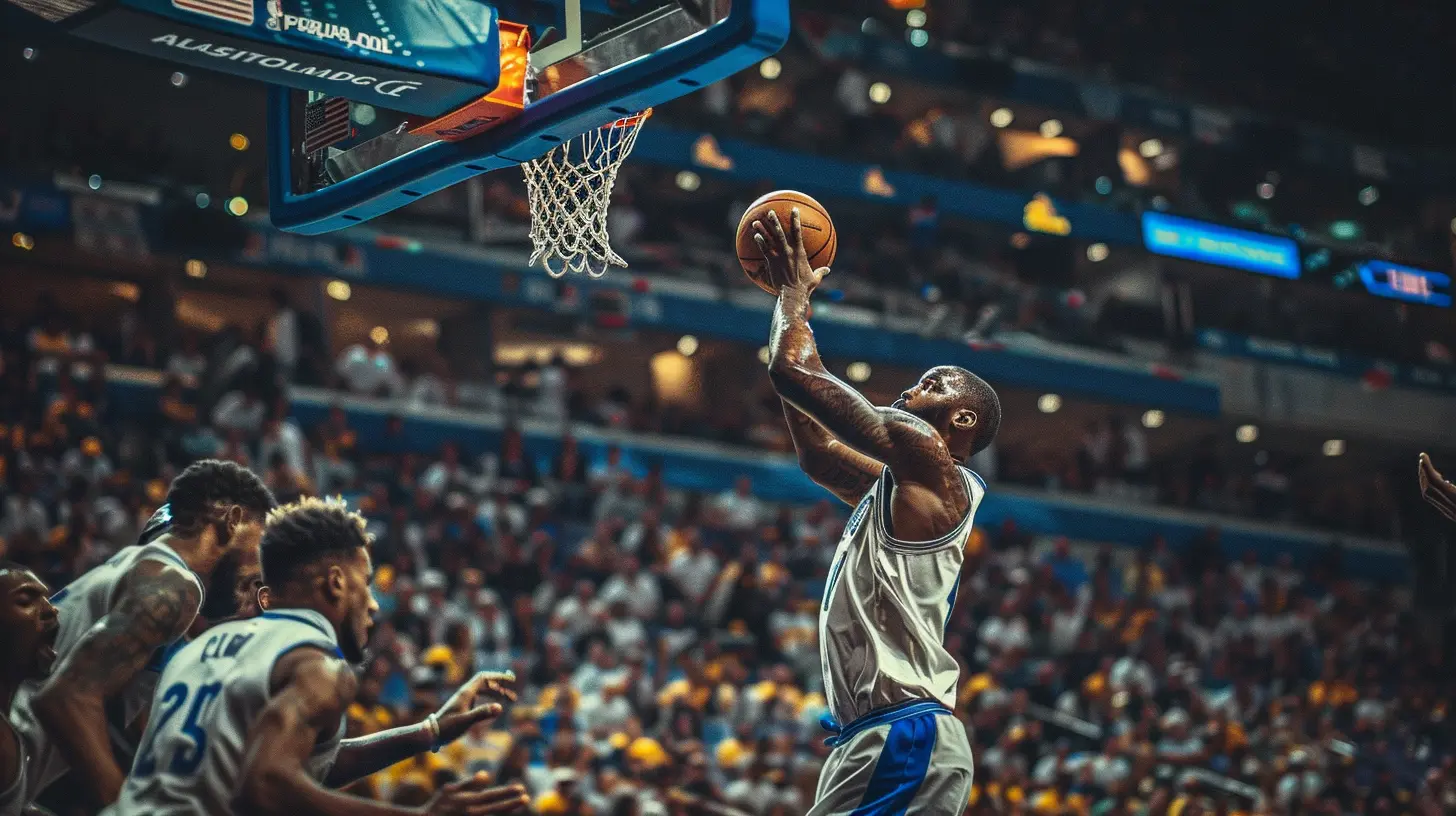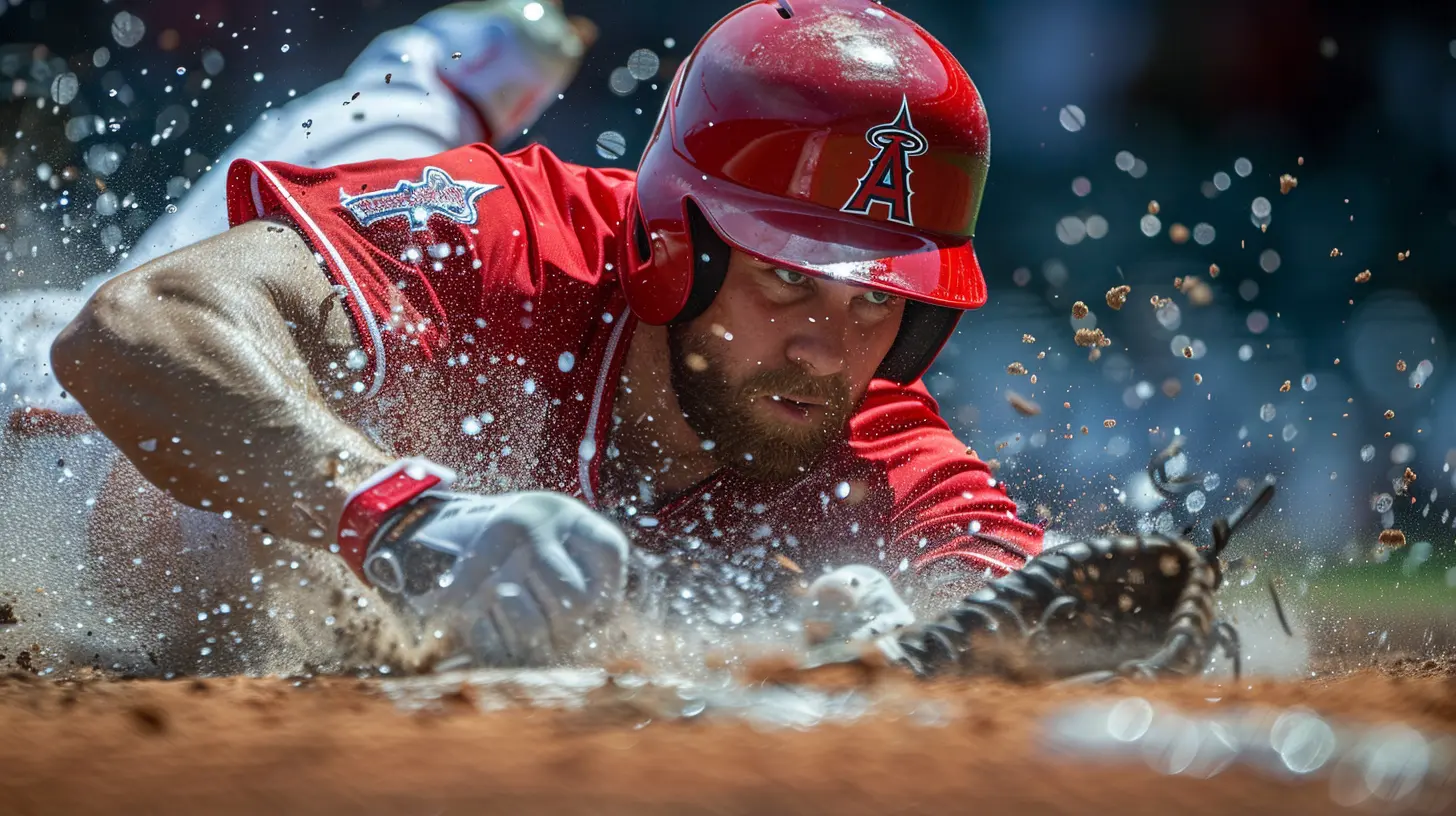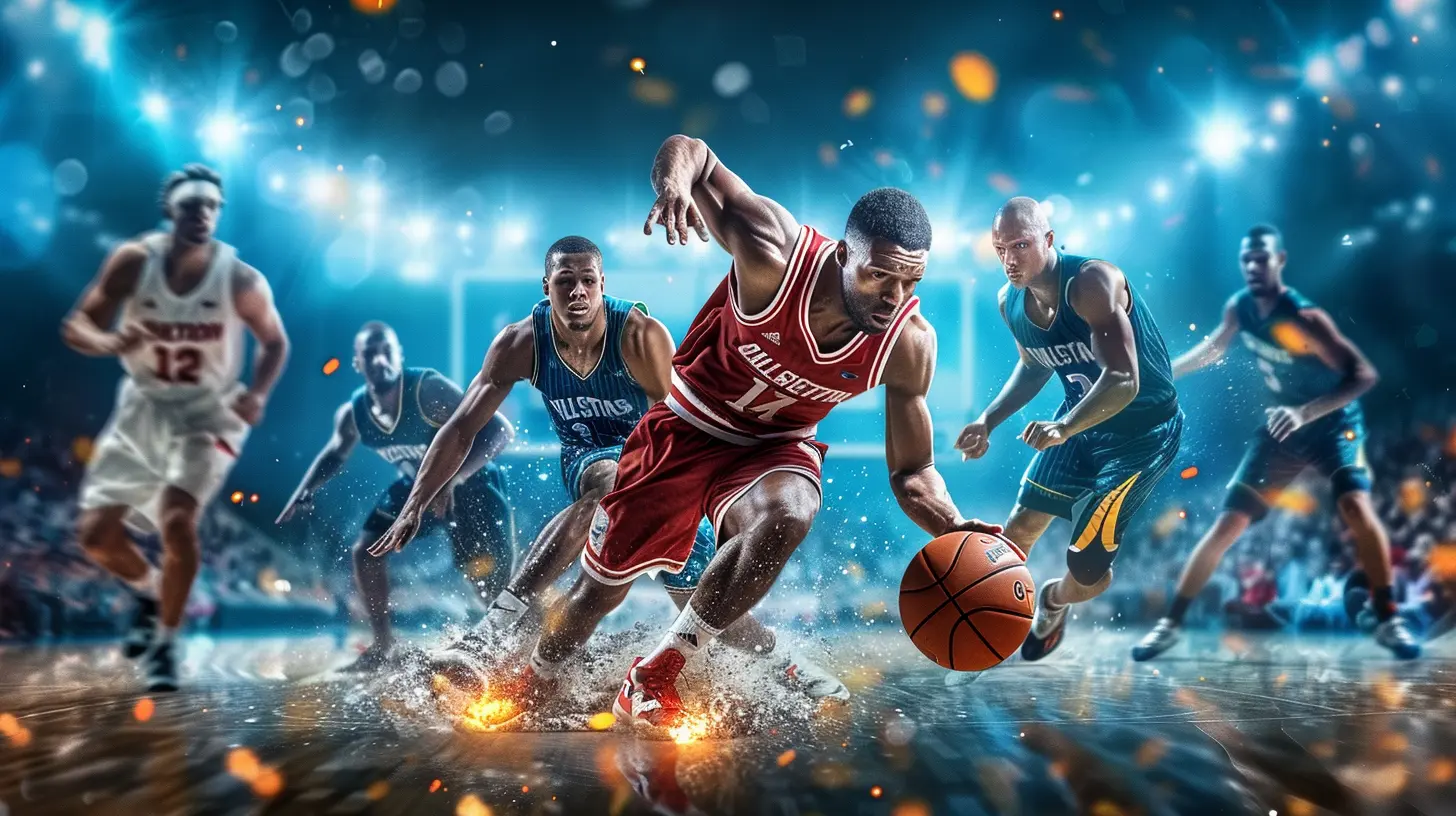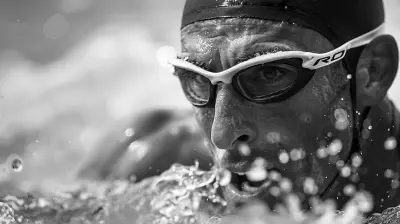The Psychology of Performing Under Pressure in All-Star Games
29 August 2025
Let’s be real—All-Star Games are a whole different beast. It’s not just about talent anymore; it’s about how well an athlete holds up when all eyes are on them. When you're standing next to the best of the best, and millions are watching from their couches, the pressure is insane.
Some thrive in that spotlight. Others? Not so much. But why is that? What goes on in the minds of elite athletes when the stakes are sky-high, and everyone's expecting magic?
Let’s break down the mental side of All-Star performance and look at what separates clutch performers from those who crack under pressure.
What Makes All-Star Games So Mentally Intense?
First off, All-Star Games are not your average weekend showdown. Sure, they may be technically “exhibition” matches, but don’t let that title fool you. These games are packed with expectations, individual pride, and the subtle (or sometimes loud) pressure to prove you deserve to be among the elite.You’re not just playing the game—you’re showcasing your entire identity as an athlete. It's part celebration, part audition.
There’s no coach barking plays every second. There’s freedom. But that freedom comes hand-in-hand with pressure. Every move is amplified. Every mistake? It’s replayed a thousand times on social media.
The Mental Weight of Being the Best
So here you are, named to an All-Star team. That’s huge. But now comes the tough part—living up to the hype.Suddenly, it’s not just about how good you are; it’s about how good you are compared to the other All-Stars. And trust me, that inner voice? It doesn’t shut up.
Thoughts like:
- “Do I really belong here?”
- “What if I mess up on national TV?”
- “Will my rivals outshine me?”
These kinds of questions can shake even the toughest athletes. That’s where the psychology kicks in.
Fight, Flight, or Freeze: The Body’s Natural Response to Pressure
Ever feel your heart pound before a big moment? That’s not just nerves—that’s your body entering fight-or-flight mode. It’s an ancient response to danger, but in the world of sports, it can either be your best friend or your worst enemy.When that adrenaline kicks in, you either get laser-focused or completely rattled. And in a flashy, fast-paced event like an All-Star Game, that burst of pressure can mess with your timing, decision-making, and overall feel for the game.
You know how some players look like they're overthinking every pass or shot? That’s the freeze part of the equation.
Confidence: The Invisible MVP
Here’s the thing—confidence isn’t just helpful in these situations. It’s everything.Athletes who walk into All-Star environments with a strong sense of self-belief are way more likely to perform well. Confidence doesn’t mean being cocky—it means trusting your skills when it counts. Think of it as the mental armor that deflects doubt.
Look at guys like LeBron James or Serena Williams during showcase events—they don’t just play the game; they own the spotlight. Why? Confidence built over time, through reps, through both failures and wins.
The Role of Experience: Been There, Done That
This one’s huge. Athletes who’ve been through high-pressure moments—whether it’s a championship, a game-winner, or another All-Star appearance—tend to manage the nerves way better.And it makes sense. The first time you're in an All-Star Game, the lights seem brighter. Your breathing gets heavier. It all feels surreal.
But after a few appearances? You learn to breathe through the moment. You learn to recognize the nerves not as a threat, but as energy. Experience creates a kind of mental muscle memory that helps you stay poised.
Why Some Players Perform Better Under Pressure
You ever notice how certain players just turn it on when the stakes are highest?Clutch performers often share a few psychological traits:
1. High Emotional Intelligence
They know how to regulate anxiety, stay present, and focus on the next play—not the last one.2. Short Memory
Missed a shot? Threw a bad pass? Doesn’t matter. They reset instantly. No dwelling, no spiraling.3. Routine & Rituals
Having a pre-game mental routine keeps them grounded. It might be breathing exercises, visualization, or just listening to the same playlist.4. They Play to Win (Not to Avoid Losing)
This one’s key. Fear of failure kills performance. True elite players focus on the opportunity, not the outcome.Mind Games: The Inner Dialogue of Champions
It’s not just about talent—it’s about what you say to yourself in critical moments.Positive self-talk is a real game-changer. Phrases like “I’ve done this before,” “Just play your game,” or “Stay locked in” can calm the storm inside and refocus the mind.
Negative self-talk? That’s like shooting yourself in the foot. It drains confidence and adds pressure on top of pressure.
Athletes often work with sports psychologists to shift that mindset. Why? Because the mind can be trained, just like the body.
Teammates, Trust, and Chemistry
Believe it or not, even in a showcase game, having good vibes with your teammates can help ease the psychological load.When players have each other’s backs, it creates a safety net. You’re more willing to try, risk, and express your game when you know your teammates support your moves—even if they don’t always work.
On the flip side, if there’s awkward tension or ego battles, it breeds hesitation. And hesitation kills performance, especially under pressure.
Social Media and Public Expectation
Let’s talk about the elephant in the room—social media. In 2024, it’s not just sports media coverage that players have to deal with; it’s millions of opinions flying at them from every direction.You make one bad play? There’s a meme for that. Miss a dunk? Someone clipped it and added a clown sound. This can seriously mess with your head.
Handling that digital pressure takes next-level mental resilience. Some athletes completely shut off from social media during big games. Others use it as fuel. But either way, it adds another heavy layer to the pressure sandwich.
The “Flow State”: The Holy Grail of Peak Performance
You know those moments when athletes just lock in? When they aren’t thinking—they’re just doing?That’s called “flow.” It’s a real psychological state where you’re fully immersed in the action, time slows down, and everything just clicks.
Getting into that zone during an All-Star Game is tough, but when it happens? Magic. This is when we see highlight-reel plays, game-winning shots, and legendary performances.
Achieving flow often comes down to preparation, mindset, and the ability to shut out distractions. It's rare, but it’s priceless.
Tips Athletes Use to Handle All-Star Pressure
Want to know how top athletes stay sharp under pressure? Here are a few go-to strategies:🧘♂️ Visualization
They mentally rehearse the game beforehand—what it looks like, feels like, how they’ll react under pressure.🧠 Mental Reframing
Instead of thinking “I have to perform,” they switch it to “I get to perform.” That flips fear into excitement.💨 Focused Breathing
Simple breathing techniques can bring the heart rate down and increase focus. Inhale for 4, hold for 4, exhale for 4. Works wonders.🎧 Music & Routines
Sticking to familiar rituals before the game creates a sense of control—and control kills anxiety.Real-World All-Star Mental Masterclasses
Let’s talk examples.- Steph Curry lights up All-Star Weekends like it’s practice. Why? He stays relaxed, loves the moment, and plays loose.
- Giannis Antetokounmpo? He treats every game—even exhibition ones—as serious business. His focus doesn’t waver.
- Remember when Kobe Bryant went at it with Michael Jordan in an All-Star Game? That wasn’t just competition—that was mental dominance. He wanted to prove something, and his mind was locked in.
Wrapping It Up…
At the end of the day, All-Star Games are about more than just athleticism—they’re a mental marathon. The athletes who shine don’t just have better stats; they have stronger minds.The ability to handle pressure, shut out the noise, and trust your game when the lights are the brightest—that’s what makes a true All-Star.
So the next time you see a player drop 40 in an All-Star Game, remember: it’s not just the jump shot that’s elite—it’s their mindset.
all images in this post were generated using AI tools
Category:
All Star GamesAuthor:

Uziel Franco
Discussion
rate this article
1 comments
Mary McCarron
Great insights on the mental aspects of All-Star performances! Understanding how pressure influences athletes can enhance training and strategies. It’d be interesting to explore specific techniques players use to manage pressure during big moments.
September 13, 2025 at 12:03 PM

Uziel Franco
Thank you! Exploring specific techniques like visualization, mindfulness, and breathing exercises can provide valuable insights into how athletes manage pressure during high-stakes moments.


